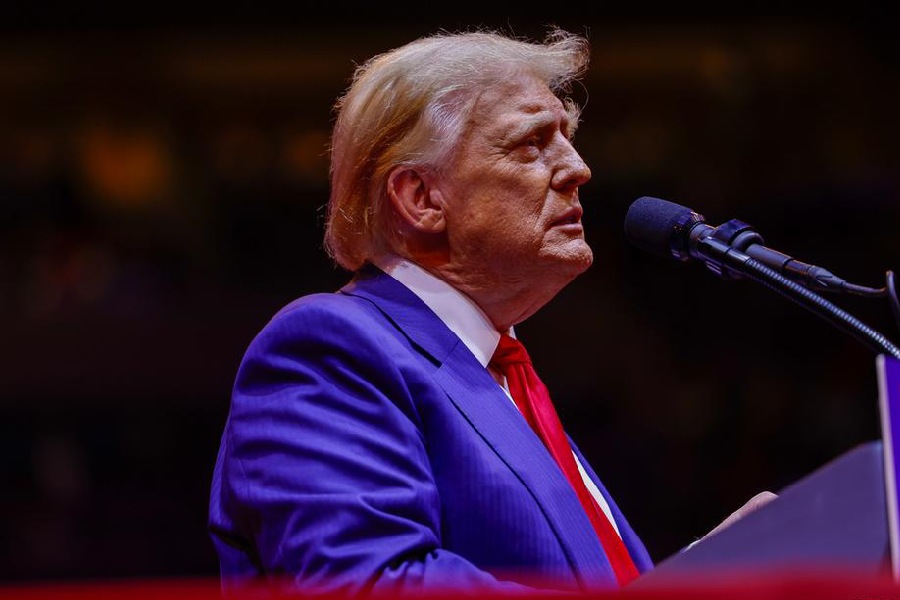Former President Donald J. Trump and his allies are rolling out a late-stage campaign strategy that borrows heavily from the subversive playbook he used to challenge his loss four years ago, this time with reinforcements from outside groups built on the false notion of a stolen election.
With Election Day only three days away, Trump is already claiming the Democrats are “a bunch of cheats,” as his allies in battleground states spread distorted reports of mishaps at the polls to push a narrative of widespread fraud.
Trump and his most prominent supporters have pointed to partisan polling and betting markets to claim that he is heading for a “crushing victory,” as his top surrogate Elon Musk recently put it. The expectation helps set the stage for disbelief and outrage among his supporters should he lose.
And in a direct echo of his failed — and, prosecutors say, illegal — bid to remain in power after the 2020 election, some of his most influential advisers are suggesting he will yet again seek to claim victory before all the votes are counted, a move that ushered in his efforts to deny his defeat four years ago and helped set the stage for the attack on the Capitol on January 6, 2021.
In many respects, though, the effort that led to January 6 never ended.
“It’s been four years of spreading lies about elections and recruiting volunteers to challenge the system, filing litigation,’’ said Joanna Lydgate, the chief executive of States United Democracy Centre, a non-profit group that works with state officials to bolster confidence in their elections. “What we’re seeing today is all of that coming to fruition.”
The Trump campaign did not respond to an email seeking comment. In a statement, Dana Remus, a top lawyer for Vice-President Kamala Harris’s campaign, said, “It isn’t surprising that he is already questioning the results of a still ongoing election” and added, “He failed when he tried this in 2020, and he will fail again.”
Polls show the race is effectively tied, leaving the possibility that Trump will win and have no reason to dispute the outcome. In that case, the question of whether to accept the results would fall to Harris, who has said she would uphold “free and fair elections” and the “peaceful transfer of power”.
For all the similarities, there are important differences between now and 2020, some of which reassure the coalition of civil rights lawyers, Democrats, Republicans and election administrators working to prevent a repeat of 2020:
Congress has passed a new law, the Electoral Count Reform Act, meant to make it harder to stop the final certification of the results by Congress on January 6, as Trump tried to do four years ago.
Trump no longer has control of the federal government — which he sought to use to press his 2020 case. In the states, there are fewer like-minded Republicans in key positions of power than there were four years ago.
Some of the loudest clarions for stolen election theories have paid heavily for circulating them, including Fox News, which last year paid Dominion Voting Systems $787 million to settle a lawsuit over the network’s promotion of false theories that Dominion’s machines had switched votes.
And the experience of 2020, along with more recent clashes over voting issues, has taught election administrators lessons about fortifying themselves against a similar effort this year.
“You have the benefit of something having happened once before,” said the Pennsylvania secretary of state, Al Schmidt, a Republican. “You learn from it to guide you moving forward.” But the threat of another chaotic post-election period remains.











